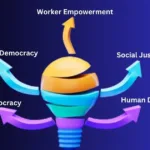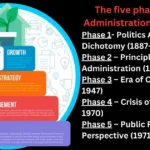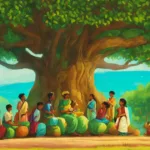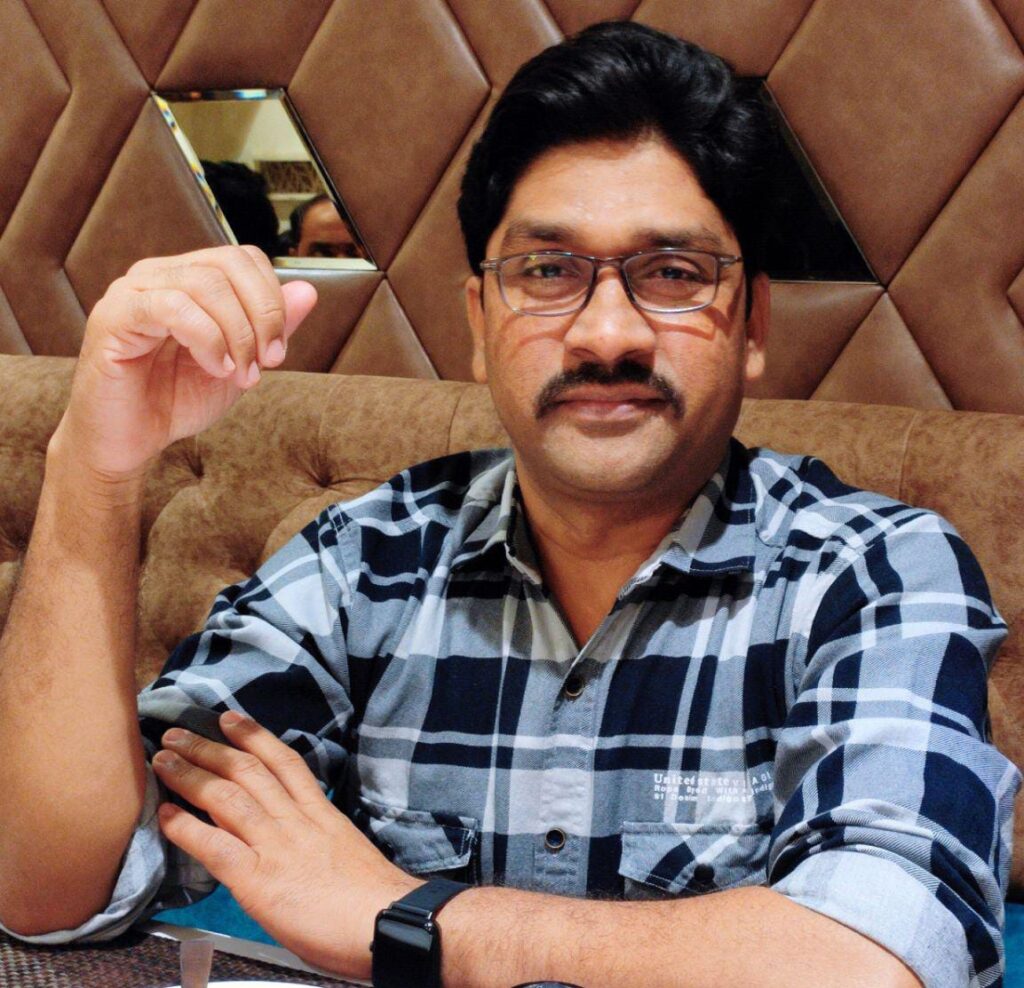Lokmanya Bal Gangadhar Tilak well-known for his Political Philosophy. He is a visionary leader in India’s struggle for independence, left an indelible mark through his unwavering commitment to Swarajya (self-rule) and nationalism. His advocacy for national unity, cultural revival, and mass mobilization shaped India’s ethos. Tilak’s enduring legacy resonates in modern India, emphasizing unity amidst diversity and celebrating cultural pride. His call for active citizen participation echoes in contemporary grassroots movements and civil society activism. His pivotal role in India’s freedom movement laid the foundation for future leaders and movements. Tilak’s principles of self-rule, cultural resurgence, and empowering the masses continue to inspire, guiding India towards progress, democracy, and inclusive development. His legacy embodies India’s resilience, unity, and unwavering spirit in the pursuit of freedom and progress.
Introduction:
Brief Overview of Lokmanya Bal Gangadhar Tilak
Lokmanya Bal Gangadhar Tilak, fondly referred to as Lokmanya Tilak, was an influential figure in India’s struggle for independence during the late 19th and early 20th centuries. Born on July 23, 1856, in Ratnagiri, Maharashtra, Tilak emerged as a staunch nationalist, social reformer, and visionary leader.
From his early days, Tilak displayed a keen intellect and a deep-rooted reverence for Indian culture and heritage. He pursued his education at Deccan College in Pune and demonstrated a profound interest in history, philosophy, and social issues. His exposure to Western ideas combined with his admiration for India’s rich cultural past played a pivotal role in shaping his ideologies.
Tilak’s journey towards becoming an influential nationalist leader began with his foray into journalism. He utilized the power of the written word through newspapers such as Kesari (in Marathi) and The Maratha (in English), where he fearlessly voiced his thoughts on political, social, and cultural issues. His writings were instrumental in awakening a sense of pride in Indian traditions, encouraging nationalistic fervor, and calling for reforms in society.
Setting the Context of India’s Struggle for Independence during Tilak’s Time
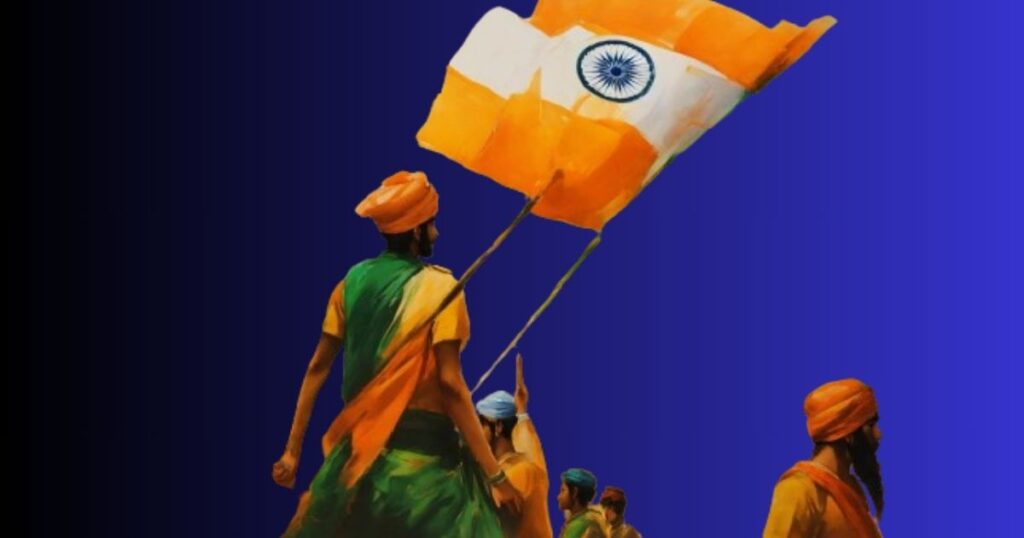
Tilak emerged as a prominent leader during a tumultuous period in India’s history, marked by British colonial rule and growing discontent among the Indian populace. The late 19th and early 20th centuries witnessed widespread resentment against British policies, which were perceived as exploitative and oppressive.
During Tilak’s time, India was experiencing a surge of movements advocating for social reforms, cultural resurgence, and political autonomy. The Indian National Congress, established in 1885, became a platform for articulating Indian grievances and aspirations. However, there were diverging ideologies within the Congress, with some advocating moderate approaches while others, like Tilak, embraced a more assertive and radical stance against British rule.
Tilak’s leadership coincided with a period of fervent nationalism and a growing call for Swarajya (self-rule) among Indians. His unwavering belief in India’s right to govern itself and his impassioned calls for Swarajya resonated deeply with the masses, galvanizing them into action against colonial oppression.
Amidst this backdrop of social, cultural, and political awakening, Lokmanya Tilak emerged as a stalwart leader who not only articulated the aspirations of the Indian people but also mobilized them towards a common goal of achieving independence and reclaiming their inherent rights.
Lokmanya Tilak’s role in shaping India’s struggle for independence and his enduring legacy as a visionary leader continue to inspire generations, symbolizing the unwavering spirit and resilience of a nation striving for freedom.
Early Life and Influences:
Overview of Tilak’s Upbringing and Education
Lokmanya Bal Gangadhar Tilak was born into a middle-class Chitpavan Brahmin family on July 23, 1856, in Ratnagiri, Maharashtra. His father, Gangadhar Tilak, was a schoolteacher, and his mother, Parvati Bai, played a significant role in his upbringing.
Tilak’s early education was in Marathi and Sanskrit, fostering a deep connection with Indian languages and classical texts. His inquisitive mind and academic prowess led him to pursue higher education at Deccan College in Pune, where he delved into subjects like mathematics, history, and Sanskrit literature.
Influences that Shaped Tilak’s Ideologies and Beliefs
Tilak was profoundly influenced by India’s rich cultural heritage, which permeated his thoughts and actions throughout his life. He drew inspiration from ancient Indian scriptures, philosophies like Vedanta, and the teachings of revered figures like Swami Vivekananda. These influences instilled in him a deep sense of pride in Indian traditions and values.
Western education exposed Tilak to liberal and progressive ideas, fostering an understanding of contemporary political and social philosophies. However, his core beliefs remained deeply rooted in Indian cultural ethos, which he considered fundamental to the Indian identity.
Connection with Indian Culture, History, and Philosophy
Tilak’s connection with Indian culture and history was pivotal in shaping his ideologies. He had a profound appreciation for India’s glorious past, embracing its cultural diversity and historical achievements. His admiration for figures like Shivaji Maharaj, a Maratha warrior-king known for his valor and administration, further fueled his nationalist sentiments.
Additionally, Tilak’s exploration of Indian philosophy, particularly the concept of dharma (duty/righteousness), influenced his ideas on social reform and political activism. He believed in the ethical responsibility of individuals towards society and the nation.
His immersion in India’s cultural heritage, coupled with a nuanced understanding of Western thought, formed the bedrock of Tilak’s political philosophy. It laid the foundation for his advocacy of Swarajya, national unity, and cultural resurgence, which became central tenets in his pursuit of India’s freedom.
Lokmanya Tilak’s early life experiences, education, and profound connections with Indian culture and philosophy played a pivotal role in shaping his ideologies, molding him into a visionary leader who would significantly impact India’s struggle for independence.
Core Tenets of Tilak’s Political Philosophy:
Swarajya:
Meaning and Significance of Self-Rule in Tilak’s Vision:
Swarajya, or self-rule, was the cornerstone of Lokmanya Tilak’s political philosophy. He envisioned Swarajya as the inherent right of every Indian to govern themselves, free from foreign rule. Tilak believed that political independence was essential for the social, cultural, and economic development of the nation. His vision of Swarajya extended beyond political autonomy to encompass a holistic empowerment of the Indian populace.
Emphasizing “Swaraj is My Birthright, and I Shall Have It”:
Tilak’s famous proclamation, “Swaraj is my birthright, and I shall have it,” encapsulated his unwavering determination and the assertion of India’s rightful claim to self-rule. This slogan echoed the sentiments of millions, resonating deeply within the masses and becoming a rallying cry for the freedom movement.
Tilak’s Role in Popularizing the Idea of Swarajya Among the Masses:
Through his writings, speeches, and public addresses, Tilak tirelessly propagated the concept of Swarajya among the common people. He made complex political ideas accessible to the masses, inspiring them to envision and strive for a free India. His unwavering commitment to Swarajya catalyzed widespread support for the cause of independence.
Nationalism and Unity:

Tilak’s Emphasis on Fostering National Unity Regardless of Caste, Creed, or Region:
Tilak recognized the diversity of India and advocated for unity among its people. He emphasized the importance of transcending barriers of caste, creed, and region to forge a unified Indian identity. He believed that a united front was imperative to challenge British rule and laid emphasis on the common heritage that bound all Indians together.
Strategies to Create a Sense of Pride in Indian Culture and Heritage:
Tilak actively promoted Indian culture and heritage as a means to instill a sense of pride and identity among Indians. He celebrated festivals like Ganesh Chaturthi and Shivaji Jayanti as platforms to revive cultural pride and awaken nationalist sentiments.
Mobilizing the Diverse Indian Populace for a Unified Front Against British Rule:
Tilak’s vision of nationalism aimed at mobilizing people across various strata of society. He sought to bridge the divides and create a cohesive force against British imperialism, emphasizing the common goal of achieving freedom and self-rule.
Mass Mobilization and Public Participation:
Tilak’s Approach to Involving the Masses in the Freedom Struggle:
Unlike many leaders of his time, Tilak actively engaged the masses in the freedom struggle. He recognized the power of the common people and believed in their ability to effect change. He advocated for their active involvement in the fight for independence.
Utilizing Festivals and Gatherings to Instill Nationalist Sentiments:
Tilak strategically utilized cultural events, festivals, and public gatherings to infuse a sense of nationalism among the masses. He used these platforms to evoke patriotic fervor and inspire people to take ownership of the freedom movement.
Importance of Active Public Participation in Achieving Independence:
Tilak emphasized that achieving independence required the active participation of every individual. He encouraged people to contribute to the cause, whether through political activism, cultural revival, or economic boycotts.
Education, Self-Reliance, and Economic Freedom:
Tilak’s Advocacy for Widespread Education Among the Masses:
Understanding the transformative power of education, Tilak advocated for widespread literacy and education among the masses. He believed that an educated populace would be better equipped to understand their rights and contribute to the nation’s progress.
Promoting Economic Self-Reliance Through Swadeshi and Boycotting Foreign Goods:
Tilak stressed the importance of economic independence. He encouraged the use of Swadeshi goods and the boycott of foreign goods to reduce dependence on British-manufactured products. Economic empowerment was seen as vital in the struggle for freedom.
Empowerment Through Education and Economic Independence:
Tilak viewed education and economic independence as key elements in empowering the masses. He believed that an educated and economically self-reliant populace would form the backbone of a strong and independent India.
Lokmanya Tilak’s political philosophy encompassed a comprehensive framework focusing on Swarajya, nationalism, mass mobilization, education, and economic independence. His vision aimed to empower the masses and create a united front in the pursuit of India’s independence.
Impact and Legacy:
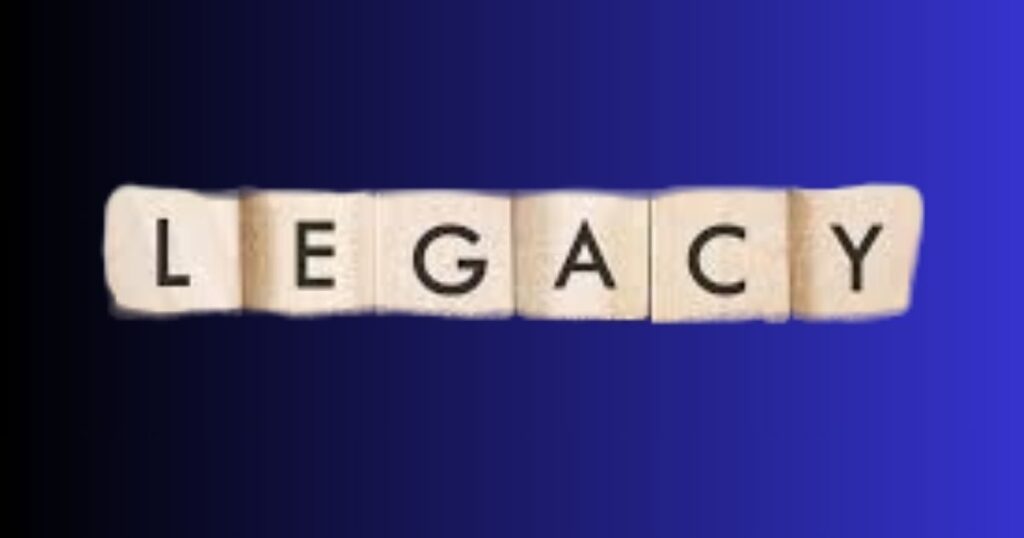
Tilak’s Influence on India’s Freedom Movement and Its Leaders
Catalyst for the Freedom Movement:
Lokmanya Tilak’s contributions were instrumental in galvanizing India’s freedom movement. His unwavering commitment to Swarajya, emphasis on nationalism, and mobilization of the masses inspired a generation of leaders and ignited a sense of purpose among Indians striving for independence.
Inspiration to Fellow Leaders:
Tilak’s ideologies profoundly influenced other prominent figures in the freedom struggle, including Mahatma Gandhi, Jawaharlal Nehru, and Subhas Chandra Bose. His emphasis on self-rule, mass mobilization, and cultural revival became guiding principles for many leaders who followed in his footsteps.
Role in Shaping Political Discourse:
His advocacy for Swadeshi, self-reliance, and cultural pride laid the groundwork for various movements within the Indian National Congress and other nationalist organizations. His radical approach toward British rule spurred the adoption of more assertive strategies in the fight for independence.
Continuing Relevance of Tilak’s Principles in Modern India
Legacy of Nationalism and Unity:
Tilak’s emphasis on national unity remains relevant in contemporary India. His vision of transcending barriers of caste, creed, and region continues to inspire efforts toward fostering unity and inclusivity in a diverse nation.
Cultural Revival and Identity:
His efforts to revive Indian culture and instill pride in Indian heritage resonate in the ongoing discourse on cultural preservation and the celebration of indigenous traditions. Festivals like Ganesh Chaturthi, which he popularized, continue to be celebrated with fervor across the country.
Political Thought and Grassroots Mobilization:
Tilak’s strategies for mass mobilization and the involvement of the common people in the freedom movement offer lessons for modern grassroots movements and political activism. His methods of engaging the masses hold relevance in contemporary social and political campaigns.
Legacy in the Realms of Politics, Culture, and Nationalism
Political Legacy:
Lokmanya Tilak’s legacy extends into India’s political landscape. His bold and assertive approach in challenging colonial rule set the tone for future leaders and movements. His legacy echoes in the democratic ethos and principles that guide Indian politics today.
Cultural Influence:
Tilak’s efforts to revive Indian culture and traditions left an indelible mark on cultural practices. His promotion of cultural events as platforms for nationalistic fervor continues to influence cultural celebrations and public gatherings.
Nationalistic Ideals:
His unwavering commitment to India’s independence and his firm belief in the nation’s capacity to govern itself continue to inspire a sense of pride and nationalism among Indians. His ideals of self-rule and cultural resurgence remain integral to the collective consciousness of the nation.
Lokmanya Tilak’s impact on India’s freedom movement, his enduring principles, and his multifaceted legacy in politics, culture, and nationalism serve as a testament to his visionary leadership and continue to shape India’s ethos and aspirations in the 21st century.
Conclusion
Recap of Lokmanya Tilak’s Enduring Contributions
Lokmanya Bal Gangadhar Tilak’s contributions to India’s struggle for independence and his enduring legacy stand as a testament to his visionary leadership:
- Advocacy for Swarajya: Tilak’s relentless pursuit of Swarajya, self-rule, and his famous slogan “Swaraj is my birthright, and I shall have it” became a rallying cry for India’s independence movement.
- Nationalism and Unity: His emphasis on fostering national unity, transcending barriers of caste and creed, remains an essential aspect of his legacy. Tilak’s vision of a unified India continues to resonate.
- Mass Mobilization and Cultural Revival: Tilak’s innovative approach to mass mobilization through festivals and cultural events instilled a sense of pride and nationalism among the masses, leaving a lasting impact on India’s cultural landscape.
Reflection on the Relevance of His Political Philosophy in Today’s Context
Tilak’s political philosophy retains relevance in contemporary India:
- National Unity and Inclusivity: In a diverse and pluralistic society, his emphasis on unity despite diversity remains pertinent, fostering inclusivity and harmony.
- Cultural Pride and Identity: His efforts to revive and celebrate Indian culture echo in ongoing movements to preserve indigenous traditions and cultural heritage.
- Active Citizen Participation: Tilak’s belief in the active participation of citizens in the nation’s progress is reflected in modern grassroots movements and civil society activism.
Closing Thoughts on His Pivotal Role in India’s Journey to Independence
Lokmanya Tilak’s pivotal role in India’s journey to independence cannot be overstated. His bold vision, unwavering commitment to the nation’s freedom, and strategies for mobilizing the masses laid the groundwork for future leaders and movements.
Tilak’s legacy as a nationalist leader, social reformer, and visionary continues to inspire generations. His ideals of self-rule, cultural revival, and the empowerment of the masses remain guiding lights in India’s pursuit of progress, democracy, and inclusive development.
In commemorating Lokmanya Tilak, India acknowledges the enduring impact of a leader whose ideas and principles continue to shape the nation’s ethos, inspiring a collective aspiration for a better, more united, and culturally vibrant India. His legacy serves as a reminder of the resilience, unity, and unwavering spirit that fuelled India’s quest for freedom and progress.
FAQ: Lokmanya Tilak’s Political Philosophy
Q: How did Lokmanya Tilak contribute to India’s struggle for independence?
A: Lokmanya Tilak played a pivotal role by advocating for Swarajya (self-rule) and fostering a sense of nationalism among Indians. He mobilized the masses, emphasizing unity, cultural revival, and active participation in the fight against British colonial rule.
Q: What were Lokmanya Tilak’s core principles in his political philosophy?
A: Tilak’s philosophy centered on Swarajya (self-rule), nationalism, unity among diverse communities, mass mobilization, cultural pride, education for empowerment, economic self-reliance, and the promotion of indigenous industries.
Q: How does Lokmanya Tilak’s philosophy resonate in modern India?
A: Tilak’s emphasis on national unity, cultural revival, and citizen empowerment remains relevant today. His principles of unity in diversity and fostering cultural pride continue to shape India’s social fabric and inclusive ethos.
Q: What was the significance of Tilak’s slogan, “Swaraj is my birthright, and I shall have it”?
A: The slogan encapsulated Tilak’s unwavering commitment to India’s right to self-rule. It became a powerful rallying cry, galvanizing support and inspiring millions in the quest for India’s independence.
Q: How did Tilak engage the masses in the freedom struggle?
A: Tilak strategically used cultural events, festivals, and public gatherings to instill nationalist sentiments and mobilize the masses. He believed in active public participation as a key factor in achieving independence.
Q: What lasting impact did Lokmanya Tilak have on India’s cultural and political landscape?
A: His legacy includes promoting national unity, cultural pride, and advocating for self-reliance. His principles continue to influence India’s politics, cultural celebrations, and the nation’s ongoing pursuit of progress and unity.
People Also Read: Dr. B.R. Ambedkar’s Views on Indian Constitution, Social Justice & Economics



